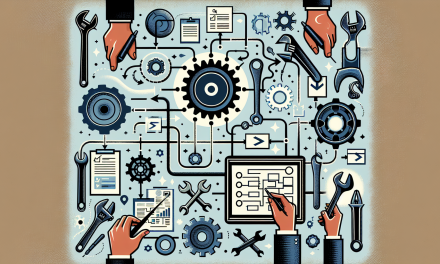Table of Contents
- Introduction
- The Importance of Road and Infrastructure Maintenance
- Essential Skills for Maintenance Success
- Best Practices in Road Maintenance
- Innovative Technologies in Infrastructure Management
- Approaches to Effective Training
- Additional Resources
- FAQs
- Conclusion
Introduction
When it comes to ensuring the longevity and safety of our roads and infrastructure, a strong foundation of knowledge and skills is paramount. Valuable techniques in maintenance help prevent minor issues from escalating into significant problems, saving both time and money. In this guide, we will delve into the intricate world of infrastructure maintenance, exploring effective methods to develop competency in managing roadways and public structures. This piece will also highlight a fantastic Road Maintenance & Infrastructure Management Training Course that provides critical insights into this field.
The Importance of Road and Infrastructure Maintenance
Proper maintenance is not merely a best practice—it is an essential component of public safety and economic stability. Roads and infrastructure support daily commutes, transportation of goods, and overall connectivity within communities. Hence, maintenance ensures that these facilities remain in good condition.
Moreover, when maintenance procedures are neglected, problems escalate quickly. Potholes can cause accidents, and deteriorating bridges may pose severe risks to motorists. Consequently, an organized approach to maintenance not only preserves structural integrity but also protects lives.
Economic Impact
The economy thrives on well-maintained infrastructure. Studies have shown that every dollar spent on infrastructure maintenance translates into several dollars saved on future repair costs. Additionally, businesses benefit from reliable transportation networks, attracting investments and encouraging local growth. Investing in training therefore aligns with creating a robust economic foundation.
Essential Skills for Maintenance Success
To successfully manage maintenance tasks, several vital skills must be developed. These skills delve into technical knowledge, project management, communication, and problem-solving abilities. Let’s explore each of these crucial components.
Technical Knowledge
Understanding the fundamental aspects of road construction materials, pavement design, and traffic management represents the basis of any competent maintenance expertise. Equally, familiarity with the latest tools and technologies further enhances maintenance capability.
Project Management
Project management skills enable professionals to effectively plan and execute maintenance schedules. A structured approach towards projects, including resource allocation and meeting deadlines, drastically improves maintenance outcomes.
Communication
Clear communication is vital in coordinating between team members, stakeholders, and the community. Sharing vital information ensures that everyone is apprised of ongoing or upcoming maintenance activities, minimizing disruptions.
Problem-solving Abilities
Developing strong problem-solving skills empowers maintenance professionals to address unexpected issues that arise. This proactive approach allows for swift resolutions, maintaining safety and efficiency.
Best Practices in Road Maintenance
Employing best practices can greatly enhance the effectiveness of maintenance efforts. The following strategies highlight some ways to optimize performance:
Regular Inspections
Conducting routine inspections allows for early detection of potential problems. Regular assessments help in prioritizing repairs based on urgency and severity.
Data-Driven Decision Making
Utilizing data analytics fosters informed decision-making. By analyzing historical maintenance data, professionals can identify patterns and trends, guiding future maintenance strategies.
Community Involvement
Engaging the community in maintenance processes fosters a sense of ownership. Encouraging residents to report issues, such as potholes or drainage problems, can ensure timely action and contribute to a smoother maintenance operation.
Innovative Technologies in Infrastructure Management
The advancement of technology has revolutionized how maintenance is conducted. Here are some noteworthy innovations changing the landscape:
Asset Management Software
Asset management software assists in tracking the condition and performance of road infrastructure. This technology streamlines data collection, helping in planning and executing maintenance efficiently.
Drones for Inspections
Drones have emerged as a powerful tool in conducting aerial inspections. This technology allows for safer and quicker assessments of hard-to-reach areas, enabling more comprehensive evaluations of infrastructure.
Approaches to Effective Training
Training in maintenance practices plays a significant role in developing the aforementioned skill sets. Engaging methods contribute to more effective learning experiences:
Hands-on Learning
Hands-on training fosters practical experience. Instructors guide participants through real-world scenarios, allowing them to apply theoretical knowledge in practical environments.
Simulations
Utilizing simulations equips trainees with the ability to anticipate problems and test solutions without real-world consequences. Simulations offer a safe space to experiment and learn.
Interactive Workshops
Interactive workshops promote collaboration and deeper understanding among participants. Discussion-based learning encourages the sharing of experiences, enhancing the learning process.
Additional Resources
For those looking to enhance their knowledge and capabilities in infrastructure maintenance further, various resources provide invaluable insights:
- The Essential Guide to Troubleshooting Maintenance and Protection of AC Electrical Motors & Drives.
- Mastering Heat Transfer in the Process Industry: Innovative Augmentation Techniques for Optimal Efficiency.
- Mastering Rotating Equipment: Optimization Strategies for Continuous Reliability Improvement.
- Mastering Process Plant Optimization and Energy Conservation Strategies for Operational Excellence.
- A Comprehensive Guide to the ASME Boiler & Pressure Vessel Code and B31 Pressure Piping Codes.
FAQs
What is the primary goal of road and infrastructure maintenance?
The primary goal of road and infrastructure maintenance is to ensure the safety, efficiency, and longevity of public structures, preventing deterioration and accommodating the needs of users.
How often should maintenance inspections be conducted?
Conducting maintenance inspections regularly, at least annually or semi-annually, is advisable. However, high-traffic areas may require more frequent evaluations.
Conclusion
In conclusion, understanding the intricacies of road and infrastructure maintenance is essential for professionals committed to ensuring public safety and enhancing economic performance. The blend of essential skills, best practices, and innovative technologies creates a framework for effective maintenance strategies. Engaging in valuable training, such as the Road Maintenance & Infrastructure Management Training Course, equips individuals with the necessary tools for success. By adopting these practices and embracing continuous learning, maintenance professionals will contribute significantly to the resilience of our infrastructure.





